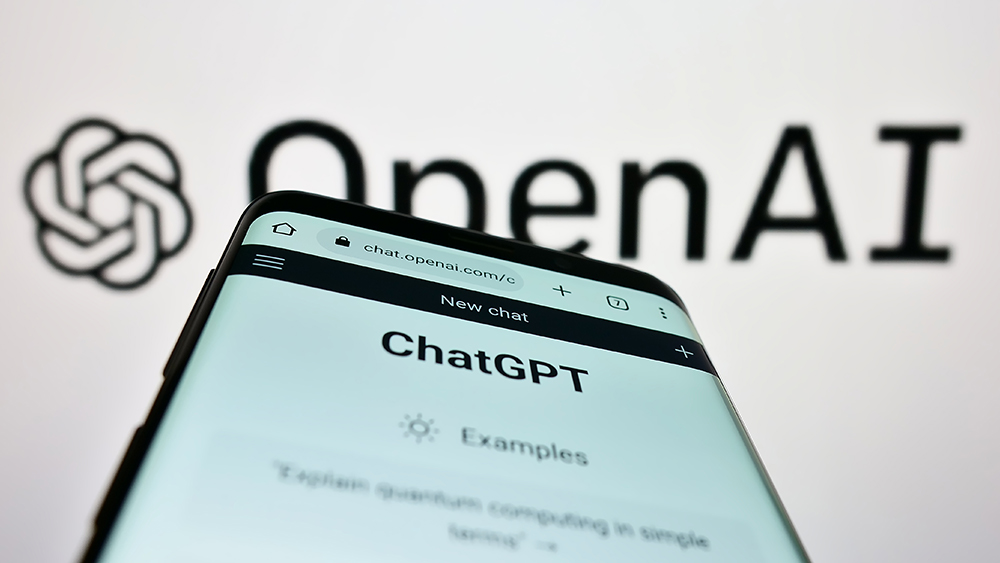AI breakthrough slashes celiac disease diagnosis time from months to minutes
03/28/2025 / By Cassie B.

- Cambridge researchers created an AI tool diagnosing celiac disease as accurately as human pathologists but in under a minute.
- The AI achieved 97% accuracy in tests using 4,000+ biopsy images, reducing wait times from months to seconds.
- Experts highlight AI’s potential to ease NHS backlogs but note infrastructure gaps hinder adoption.
- Untreated celiac disease can cause severe complications, affecting 1 in 100 people globally.
British researchers at the University of Cambridge have developed an artificial intelligence tool that diagnoses celiac disease with the same accuracy as human pathologists but at a fraction of the time, potentially reducing diagnosis wait times from months to less than a minute. The breakthrough, published March 27 in the New England Journal of Medicine AI, demonstrates how market-driven technological solutions could alleviate inefficiencies plaguing government-run healthcare systems like Britain’s National Health Service (NHS), where patients routinely face lengthy wait times for diagnosis and treatment.
AI matches pathologist accuracy while drastically reducing wait times
The machine learning algorithm was trained on more than 4,000 biopsy images from five different hospitals and tested on an independent set of 650 previously unseen images. The results showed remarkable accuracy – correctly identifying celiac disease in more than 97% of cases, with sensitivity exceeding 95% and specificity of almost 98%.
“It can take many years to receive an accurate diagnosis, and at a time of intense pressures on healthcare systems, these delays are likely to continue,” said Elizabeth Soilleux, consultant hematopathologist and professor of pathology at Cambridge University, who led the research. “AI has the potential to speed up this process, allowing patients to receive a diagnosis faster, while at the same time taking pressure off NHS waiting lists.”
Dr. Florian Jaeckle, co-author of the research, highlighted the dramatic time savings: while human pathologists require 5-10 minutes to analyze each biopsy, the AI model delivers results “in less than a minute and as soon as a biopsy is scanned.”
“Duodenal biopsies are often put at the back of the pathologist’s lists as they are not as serious as for example a possible cancer case, meaning that patients often have to wait weeks or even months to find out if they have celiac disease,” Jaeckle explained. “With AI they could get a result almost instantly… Therefore, there would never be a waiting list with AI.”
Government healthcare infrastructure lags behind innovation
Despite the promising technology, the president of the Royal College of Pathologists acknowledged significant barriers to implementation within Britain’s government-run healthcare system. Dr. Bernie Croal said that while the AI tool “has the potential to radically transform how we diagnose celiac disease,” the NHS lacks the necessary digital infrastructure to fully utilize such innovations.
“More work will be needed to get to the point where AI is fully developed and used safely in the NHS,” Croal admitted. “Investment in digital pathology, joined up functional IT systems… as well as training for pathologists to understand and use AI, will all need to be put in place.”
These infrastructure shortcomings highlight a persistent pattern in government-managed healthcare: while private sector innovation rapidly advances diagnostic and treatment capabilities, bureaucratic systems struggle to keep pace with technological progress.
Celiac disease affects approximately one in 100 people, causing symptoms including stomach cramps, diarrhea, skin rashes, weight loss, fatigue, and anemia when patients consume gluten. When left untreated, it can lead to serious complications including malnutrition, osteoporosis, infertility, and increased risk of certain cancers.
The Cambridge researchers have established a spinout company, Lyzeum Ltd, to commercialize the algorithm, creating a market-based pathway for this life-improving technology to reach patients while government systems catch up. The research received funding from Coeliac UK, Innovate UK, and the Cambridge Centre for Data-Driven Discovery, demonstrating how private sector partnerships can accelerate medical breakthroughs without total reliance on government resources.
Sources for this article include:
Submit a correction >>
Tagged Under:
AI, breakthrough, celiac disease, diagnosis, Glitch, information technology, modern medicine, NHS, research
This article may contain statements that reflect the opinion of the author
RECENT NEWS & ARTICLES
COPYRIGHT © 2017 FUTURETECH.NEWS
All content posted on this site is protected under Free Speech. FutureTech.news is not responsible for content written by contributing authors. The information on this site is provided for educational and entertainment purposes only. It is not intended as a substitute for professional advice of any kind. FutureTech.news assumes no responsibility for the use or misuse of this material. All trademarks, registered trademarks and service marks mentioned on this site are the property of their respective owners.



















